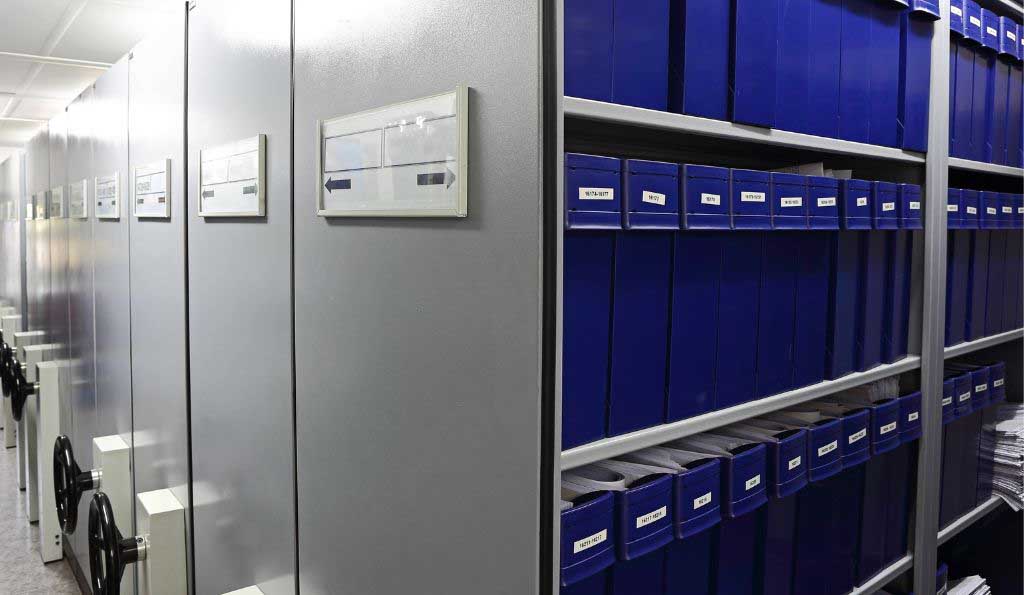Document storage is an important part of any business, and usually the bigger the business the greater the need for safe and secure document storage and accurate record keeping. When looking at your document storage requirements, research what your legal obligations are, how you want your documents stored, how and where they will be accessed, and how much you are willing to pay for it.
There are many options when it comes to document storage but here, we will define two main options: archive storage and self-storage. We will also give you a breakdown of the differences for each main factor below.
Traditional archive storage
Archive storage is a document storage system where documents are stored in files inside archive boxes. There are many archive storage facilities that deliver archive boxes to your door. You and your staff can then fill the archive boxes and the facility then returns the boxes to their site for safe storage.
The benefits of hiring a storage company to provide archive storage are manifold: they usually have a time-tested document management system, options to keep digitised versions of your records, automated document destruction, and safe and secure facilities. These features can be quite pricey.
However, you can also choose to purchase and store archive boxes in-house by yourself. The downside to this is that this will obviously take office space and it will take resources, specifically labour, to manage documents.
Self-storage
Self-storage is a storage system where the client rents a storage unit or module. Storing your documents in self-storage can be a budget friendly option. It is possible to rent a storage unit or module in a self-storage facility on a flexible monthly plan with no-lock in contract and rent anything from a small space to a large unit allowing flexibility for small and growing businesses.
However, self-storage means you will likely have to handle the documents and implement your own document management system to monitor, restrict, and schedule access, digitisation of records, and the destruction of documents.
Document Management System
A good document management system will help you index, locate, store, and schedule the destruction of documents as required. If you are required to store all sorts of documents for a long period of time such as a law firm or an insurance company, you may also require scanning services so you can have digitised copies of every document archived.
Some archive storage companies will have a built-in document management system whereas if you’re opting for self-storage you will probably have to acquire and implement your own document management systems.
If you are a small business with few documents to store a simple document storage system will suffice. You may only need a basic spreadsheet system to index your own documents and some lever files, cabinets or stack your own labelled archives boxes which you will move into self-storage when the time comes.
Features such as temperature control, security, and access
Paper is a very delicate material that can combust or become susceptible to mould if it is not stored in the right condition. Both self-storage and archive storage facilities can provide climate control which controls both temperature and humidity.
Given the private and confidential nature of the documents, security and access is also a key aspect to consider when choosing a storage facility. CCTV, smoke alarms, pest control, surveillance are all features you may or may not expect from your storage provider.
Do you need to record each document retrieval? How much access will staff require to the document? The more secure you want access to be and the more you want it documented, the more you will have to pay!
Location
Storing onsite may be an option if you don’t need to store a lot of documents. However, for most companies, offsite storage will be the most cost-effective alternative. Archive storage is usually stored out of the city where land values are lower.
As for self-storage, storage facilities tend to be housed in outer suburbs which again, reduce the cost of storage. When you don’t need access to documents, the distance is not a factor when choosing a storage facility. A direct scanning system also reduces the need for onsite access as your documents will always be available online.
Cost
Self-storage tends to be a more affordable option compared to archive storage outsourced to a document storage company. However, if you have a high volume of documents generated and stored and strict legislation governing document storage, it is worth paying for an all-inclusive document management and storage system.
Self-storage can be very low priced if you only need a small space starting from $120 monthly in Sydney, whereas an archive storage system with high security and climate control will set you back thousands a year.
Conclusion
Self-storage and archive storage through a document management company are both attractive options to document storage. Small and growing businesses in industries with less restrictive record keeping requirements can afford to maintain their own document management systems within a self-storage module or unit.
However, large businesses with a high volume of documentation and strict requirements such as in legal and financial services industries benefit from investing in archive systems, digitisation of records and a highly automated document management system.

